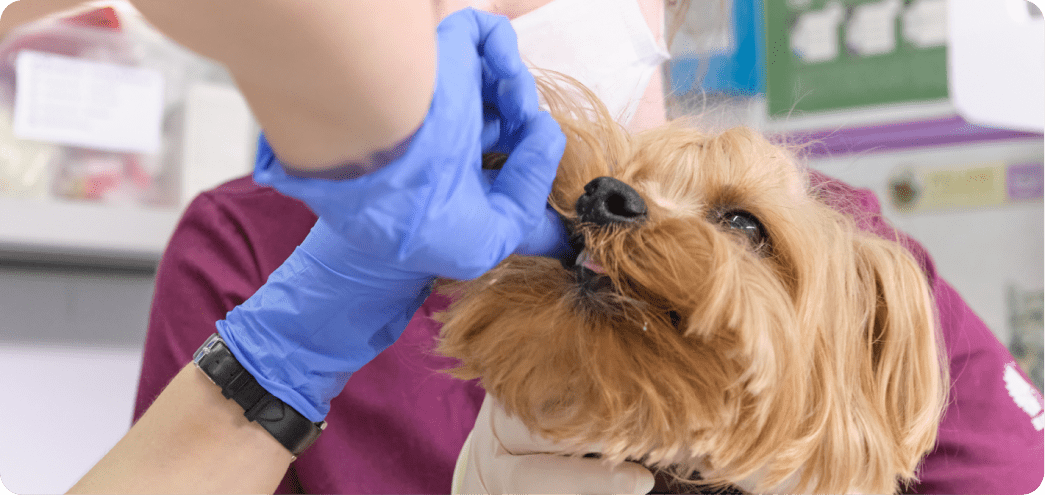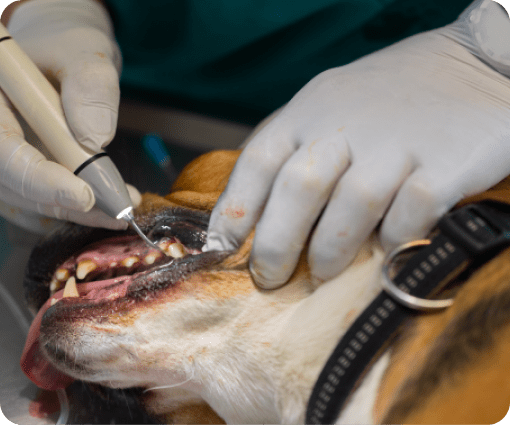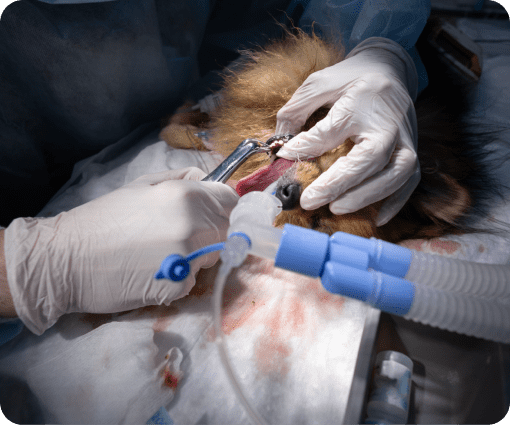

The best for your pet.
Pet periodontal disease occurs commonly in adult dogs and cats. However, this condition is completely preventable. Unfortunately, signs of this disease are often not noticeable to owners until severe damage has occurred. St. John's AAH provides dental exams, preventative treatments, and guidance to help pet owners promote dental health for their animals.
Gum disease in dogs and cats typically starts with inflammation of one tooth and can progress if not treated. Here are just a few symptoms that may indicate severe gum disease or gingivitis in dogs and cats:
It can often be difficult for pet owners to notice signs and symptoms of gingivitis in dogs and cats as animals will often not show symptoms until the problem is severe, and even then, they may hide any pain to avoid showing weakness. The best way to ensure you stay on top of these signs and symptoms is by keeping up with routine pet dental exams.
Get in Touch

There are different levels of severity of gum disease in cats and dogs. This is what these different stages look like:
There are different types of treatment recommended at each stage, including advanced pet dental work and even extraction. Your veterinarian will recommend the best course of action based on the dental exam.
Hit the Get In Touch With Us button below and fill out the form so we can properly connect you with a team member who can help. Prefer speaking with a human to filling out a form? Call our corporate office at the phone number listed below.